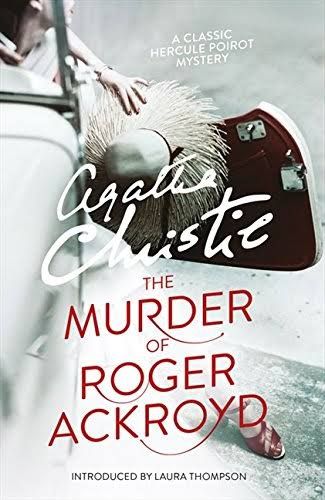The Murder Of Roger Ackroyd
Jun 12, 2019 • 653 views

Why Dr. Sheppard have a dignified exit?
Agatha Christie’s “The Murder of Roger Ackroyd” is another one of her engaging novels that outlines the unraveling of a murder by her famous detective Hercule Poirot. The readers keenly trace the detection of the crime only to reach a surprising end. The narrator himself is the culprit. Christie however, judiciously chooses to let go of the Doctor and what happens afterwards.
Initially Dr. Sheppard, the narrator is seen as Agatha Christie’s equivalent to Conan Doyle's Dr. Watson. However as the plot reaches it’s closure, the constant companion of the detective himself, Dr. Sheppard is revealed as the very shrewd, intelligent and detached villain. Hercule Poirot'spragmatic and accurate approach to the case helps him reach the murderer. Yet he doesn’t hand over Dr. Sheppard to the police and immediately inform the entire village about his findings either. A thoughtful analysis of this actions can putforth many reasons and interpretations.
Kings Abbot is a small and simple village where people live together as a community rather peacefully. Dr. Sheppard is the village doctor. The people trust him and confide in him without any apprehensions. In a huge way, it was the narrator’s noble profession that guarded his reality for so long, as per the rather simple people of Kings Abbot never had a reason to question or doubt him. Poirot is well aware that if Doctor Sheppard is revealed as the murderer, the sense of belief and honesty in the village will be shaken. This truth has the power to impact the social order of their society in a rather drastic way. Hence, Poirot believes that it would be wiser to keep quiet.
The main purpose of any detective novel is to execute the readers in the process of searching for the murderer. The readers are fascinated to see the mystery unfold, and once the murderer is found, the curtains are drawn. Hence what happens to the killer there after do not interest the readers much.
Similarly, the detective is also concerned in finding the murderer. He dedicates all of his mind, time and resources to reach a desired conclusion. Once he (Hercule Poirot, here) finds the murderer and succeeds in his endeavor, he has little interest left in the case. A sense of achievement relieves him as he solves the mystery and does not bother himself further. Hercule Poirot is a retired Belgian detective who comes to (Kings Abbot) to solve a murder and as his case is solved, he has nothing more to do with the entire story.
It is also safe to say that Hercule Poirot and Dr. Sheppard, both share a common social background. In the quiet and modest village, Poirot can identify himself only with the narrator, though only on some levels. They also had been working together on the case for quite some time now. These factors make a genuine suggestion that Poirot did not want to call the cope on Doctor Sheppard and hence gives him the freedom to decide his own fate.
Agatha Christie does not dive deeper into the consequences that Doctor Sheppard faces. She ends her novel at an opportune time, just as the murderer is released. This only emphasizes how the identity of the culprit is discovered and the journey of the discovery is most important in her story. Here is a typical detective novel which doesn't bother much about justice being met in the end. In a classic "whodunnit" only 'who does it' matters, rest are unimportant digressions.
Also, a tiny possibility of an open ending is also left open to interpretation as Dr. Sheppard is allowed a dignified exit. Poirot pronounces Sheppard to be the murderer but we do not see him accepting his fault or getting punished for it. This leaves the readers with the slight possibility that maybe Dr. Sheppard is indeed covering up for Caroline. If not, then he is the murderer himself and is likely to be punished at the hands of the authorities.
Hence to conclude, one may say that Doctor Sheppard's dignified exit was a necessary ending to the plot on many levels. Agatha Christie's special quest for 'whodunnit', the importance of maintaining tranquility as in Kings Abbot and the character of Dr. Sheppard and Poirot, all achieve a sense of closure and completeness through this different ending.
